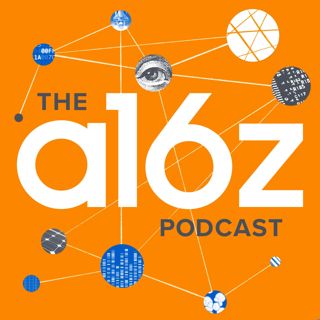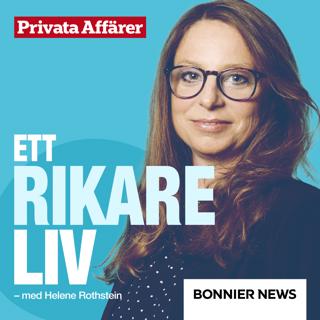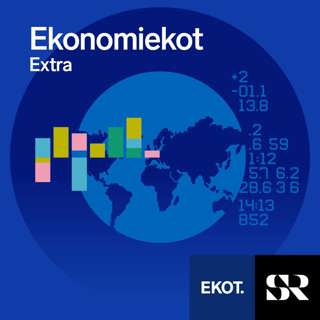
a16z Podcast: Building Worlds with VR, Art, and Narrative
Once upon a time, Robert Stromberg got a phone call from "Jim" Cameron (aka James Francis Cameron of Terminator and Titanic fame) about a little project called Avatar. Before he knew it, he was responsible for designing the organic world of Pandora, from bioluminescent plants to lush mountaintops. That was when Stromberg realized how much more technology could do, when ready, for creating more such virtual worlds. He'd actually been creating such worlds for ages, from drawing monsters in childhood to doing matte art, production design, art direction, and more for films. In this episode of the a16z Podcast, the two-time Academy Award winner (for production design on Avatar and Alice in Wonderland) and director of Maleficent shares his views on the evolution of filmmaking, narrative, and virtual reality. Stromberg directed the VR gaming experience based on The Martian (which received a Cannes Silver Lion award) and co-founded The Virtual Reality Company, which is re-imagining the film studio for the next generation of tech. What challenges do we face in an immersive medium, what will narratives look like, and what new (or even retro) techniques will we need? All this and more in this episode -- along with a16z partners Kyle Russell, Hanne Tidnam, and Sonal Chokshi -- continuing our series on new medium storytelling. image: Wikimedia Commons The views expressed here are those of the individual AH Capital Management, L.L.C. (“a16z”) personnel quoted and are not the views of a16z or its affiliates. Certain information contained in here has been obtained from third-party sources, including from portfolio companies of funds managed by a16z. While taken from sources believed to be reliable, a16z has not independently verified such information and makes no representations about the enduring accuracy of the information or its appropriateness for a given situation. This content is provided for informational purposes only, and should not be relied upon as legal, business, investment, or tax advice. You should consult your own advisers as to those matters. References to any securities or digital assets are for illustrative purposes only, and do not constitute an investment recommendation or offer to provide investment advisory services. Furthermore, this content is not directed at nor intended for use by any investors or prospective investors, and may not under any circumstances be relied upon when making a decision to invest in any fund managed by a16z. (An offering to invest in an a16z fund will be made only by the private placement memorandum, subscription agreement, and other relevant documentation of any such fund and should be read in their entirety.) Any investments or portfolio companies mentioned, referred to, or described are not representative of all investments in vehicles managed by a16z, and there can be no assurance that the investments will be profitable or that other investments made in the future will have similar characteristics or results. A list of investments made by funds managed by Andreessen Horowitz (excluding investments and certain publicly traded cryptocurrencies/ digital assets for which the issuer has not provided permission for a16z to disclose publicly) is available at https://a16z.com/investments/. Charts and graphs provided within are for informational purposes solely and should not be relied upon when making any investment decision. Past performance is not indicative of future results. The content speaks only as of the date indicated. Any projections, estimates, forecasts, targets, prospects, and/or opinions expressed in these materials are subject to change without notice and may differ or be contrary to opinions expressed by others. Please see https://a16z.com/disclosures for additional important information.
27 Jan 201738min

a16z Podcast: The Why, How, and When of PR
"Punch above your weight" -- If there's one thing public relations (PR) should help startups and founders do, it's that. Unfortunately, some companies are actually punching below their weight when there's a strong company, founder, product ... yet nobody knows about let alone talks about you. Or worse, someone else defines you first. Or you just become a hype machine. So what conversations should you be in? Is it good or bad to do PR before you have a product? And operationally, WHEN is the right time to build a PR function; WHO should you hire (whether a full-time PR person, consultant, or agency); and HOW can you tell the good from the bad? How do you even know "it's working", when time-is-money for both the startup and the PR firm that's billing you hourly or monthly? There's no easy answer, but it doesn't have to be that hard, either. In this episode of the a16z podcast, partners Margit Wennmachers and Kim Milosevich -- PR veterans who've seen all sides of public relations, from agency to big companies to startups -- share how to strike the just-right balance between doing PR too early or too late, time wasted or time wisely spent, and knowing to say "not now" vs. no... It's all about the art of persuasion. The views expressed here are those of the individual AH Capital Management, L.L.C. (“a16z”) personnel quoted and are not the views of a16z or its affiliates. Certain information contained in here has been obtained from third-party sources, including from portfolio companies of funds managed by a16z. While taken from sources believed to be reliable, a16z has not independently verified such information and makes no representations about the enduring accuracy of the information or its appropriateness for a given situation. This content is provided for informational purposes only, and should not be relied upon as legal, business, investment, or tax advice. You should consult your own advisers as to those matters. References to any securities or digital assets are for illustrative purposes only, and do not constitute an investment recommendation or offer to provide investment advisory services. Furthermore, this content is not directed at nor intended for use by any investors or prospective investors, and may not under any circumstances be relied upon when making a decision to invest in any fund managed by a16z. (An offering to invest in an a16z fund will be made only by the private placement memorandum, subscription agreement, and other relevant documentation of any such fund and should be read in their entirety.) Any investments or portfolio companies mentioned, referred to, or described are not representative of all investments in vehicles managed by a16z, and there can be no assurance that the investments will be profitable or that other investments made in the future will have similar characteristics or results. A list of investments made by funds managed by Andreessen Horowitz (excluding investments and certain publicly traded cryptocurrencies/ digital assets for which the issuer has not provided permission for a16z to disclose publicly) is available at https://a16z.com/investments/. Charts and graphs provided within are for informational purposes solely and should not be relied upon when making any investment decision. Past performance is not indicative of future results. The content speaks only as of the date indicated. Any projections, estimates, forecasts, targets, prospects, and/or opinions expressed in these materials are subject to change without notice and may differ or be contrary to opinions expressed by others. Please see https://a16z.com/disclosures for additional important information.
26 Jan 201742min

a16z Podcast: VR, AR, and Beyond: The New Medium of Human Experience
The building blocks for VR and AR are finally here -- but the content is just beginning. So everything you'll actually experience and consume in these new mediums over the next few years is being built right now. Formats aren't yet defined or locked down, and the field is bubbling up with experiments in forms, formats and genres, from narrative to games to live events. As we begin to have real time rendered characters and AI-driven environments that you can interact with, the storytelling structure will also need to completely change. Are these mediums inherently social -- or just the opposite? What will self expression look like? What experiences are being built? Because fundamentally, that is the "celluloid" we are now working with -- human experience, says Within cofounder and filmmaker Chris Milk. Bigscreen founder and CEO Darshan Shankar, Lytro CEO Jason Rosenthal, and Milk join a16z's Kyle Russell in conversation about the challenges, potential, and emotional power of these new technologies -- on this episode of the a16z Podcast, recorded at the inaugural a16z summit. The views expressed here are those of the individual AH Capital Management, L.L.C. (“a16z”) personnel quoted and are not the views of a16z or its affiliates. Certain information contained in here has been obtained from third-party sources, including from portfolio companies of funds managed by a16z. While taken from sources believed to be reliable, a16z has not independently verified such information and makes no representations about the enduring accuracy of the information or its appropriateness for a given situation. This content is provided for informational purposes only, and should not be relied upon as legal, business, investment, or tax advice. You should consult your own advisers as to those matters. References to any securities or digital assets are for illustrative purposes only, and do not constitute an investment recommendation or offer to provide investment advisory services. Furthermore, this content is not directed at nor intended for use by any investors or prospective investors, and may not under any circumstances be relied upon when making a decision to invest in any fund managed by a16z. (An offering to invest in an a16z fund will be made only by the private placement memorandum, subscription agreement, and other relevant documentation of any such fund and should be read in their entirety.) Any investments or portfolio companies mentioned, referred to, or described are not representative of all investments in vehicles managed by a16z, and there can be no assurance that the investments will be profitable or that other investments made in the future will have similar characteristics or results. A list of investments made by funds managed by Andreessen Horowitz (excluding investments and certain publicly traded cryptocurrencies/ digital assets for which the issuer has not provided permission for a16z to disclose publicly) is available at https://a16z.com/investments/. Charts and graphs provided within are for informational purposes solely and should not be relied upon when making any investment decision. Past performance is not indicative of future results. The content speaks only as of the date indicated. Any projections, estimates, forecasts, targets, prospects, and/or opinions expressed in these materials are subject to change without notice and may differ or be contrary to opinions expressed by others. Please see https://a16z.com/disclosures for additional important information.
24 Jan 201726min

a16z Podcast: Of Policy, Capital, and the Startup Ecosystem
How to think about business policy and top-of-mind issues for the tech industry, given a new president? From what agencies matter for startups and VC to what the first 100 days (and next two years!) look like, a16z managing partner Scott Kupor and president and CEO of the National Venture Capital Association (NVCA) Bobby Franklin share what happens between elections and when the reality of the Washington process sets in post-inauguration. What are some of the discussions that are happening around taxation, special stock exchanges for earlier-stage/ smaller companies, and what was the JOBS Act again? Believe it or not, seemingly wonky details like these incent behavior -- for better or worse, with intended and unintended consequences -- and in this episode of the a16z Podcast, we discuss all this and more. (Company) size does matter, after all.
21 Jan 201723min

a16z Podcast: Of Presidents, Policies, and Tech
How to think about tech policy and top-of-mind issues for the tech industry, given a new president? From what agencies matter for different tech domains -- e.g., autonomous cars, drones, fintech, healthcare -- to recent staffing moves, the a16z Policy and Regulatory Affairs team shares their views in this episode of the podcast. What happens to tech policy when you have a dominant Republican presence in both Congress and most states, yet a Democratic majority of mayors? Especially when cities (potentially laboratories of experimentation) may be where all the real tech action's at? How does tech policy play out differently at the local, state, international, and even federal levels? Especially when many of the tech issues don't fall along party lines ... and the traditional way you look at issues is "left vs. right" -- "but it's almost like 'forward/backward'" here. And finally, how should entrepreneurs think about engaging with policymakers, and vice versa?
21 Jan 201740min

a16z Podcast: Culture and/of Design
"Mobile-first" (and now too AI-first) has been a mantra of sorts in design, but what does that mean at a company, product management, and competitive level? Especially when someone in company X will always say "we should do what Y did" -- even if they have no idea let alone data why Y did it. And while designing for screens is "like growing a carp in a bathtub" (will inevitably grow to the size of the container), what do design constraints mean in an increasingly screen-less world -- one where everything will eventually become an input ... and even an output? What does it mean to design for a mobile world where "an app isn't really an app" -- and the very definition of apps are themselves evolving, including cross-culturally? From the age-old question of whether there are design universals to the age-old dynamic of bundling/unbundling, the guests on this episode of the a16z Podcast -- Luke Wroblewski and a16z's Connie Chan (in conversation with Sonal Chokshi) riff, hallway style, on all things design in practice. And on why startups may have the ultimate design advantage.
18 Jan 201729min

a16z Podcast: Real Estate -- Ownership, Asset, Economy
The largest asset class in the United States is owner-occupied real estate, yet options for homeowners accessing this are very binary right now: either own 100% of your home (with a mortgage), or own nothing. And when people do “own”, that ownership is often skewed by debt. Of course, debt works out great for some, given their risk profiles and potential upside (if the house keeps appreciating); but the downside risk and costs are disproportionately borne by the homeowner. And millennials can’t even enter the housing market in the first place. So how can technology help address a system skewed by debt financing, by letting homeowners sell fractions of equity to unlock wealth without necessarily borrowing against their homes? How can such new approaches help homeowners and financers better align risk and incentives, and unlock a whole new asset class for all kinds of investors? How can they help avoid mortgage crises around the world, and the macroeconomic impact of reduced spending, lost jobs, and more? And finally, what is the role of policy here … especially since the government is de facto subsidizer of certain home finance products over others. We discuss all this and more in this episode of the a16z Podcast, featuring general partner Alex Rampell; CEO & co-founder of Point, Eddie Lim; and Atif Mian, professor of economics and public affairs at Princeton University who also co-authored (with Amir Sufi) the book House of Debt: How They (and You) Caused the Great Recession, and How We Can Prevent It from Happening Again — in conversation with deal and investing team partner Angela Strange.
13 Jan 201729min

a16z Podcast: Machine Intelligence, from University to Industry
From the significance of Google DeepMind's AlphaGo wins to recent advances in "expert-level artificial intelligence" in playing an imperfect/ asymmetric information game like poker, toys and games have played and continue to play a critical role in advancing machine intelligence. One of the pioneers in this area among others is the Alberta Innovates Centre for Machine Learning -- now the Alberta Machine Intelligence Institute (amii) -- which in 2007 solved the long-standing challenge of checkers, and in 2015 produced the first AI agent capable of playing "an essentially perfect game" of heads-up limit hold’em poker. But what does that mean for the evolution of such technology out of play and into production? Out of universities and into industry? (Especially when many such university programs and talent are being hollowed out by companies and they're reliant on intellectual property or provincial support, as is the case of this University of Alberta based institute). And how can CEOs and others embrace learning about this tech somewhere in between? So... what will it take to make AI "real"? What about genetic algorithms, treating computers like people, and other near- and far-future possibilities? This episode featuring the executive director of Amii, Cameron Schuler, and a16z deal, research, and investing team operating head Frank Chen covers all this and more. The conversation was recorded recently as part of our inaugural a16z Summit event. image: Nyks / Wikimedia Commons
11 Jan 201727min






















